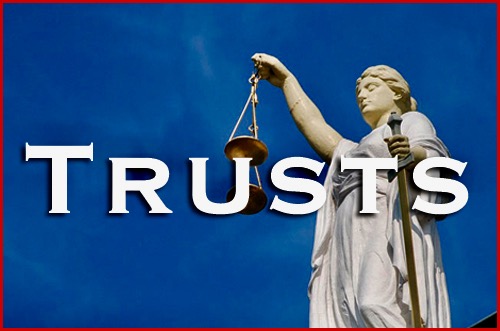Zimmerman v McMichael Estate 2010 ONSC 2947 involved a passing of accounts hearing where a trustee was denied any compensation for his breach of duties as acting as trustee, denied fees, and ordered to re-pay $450,000 that he had pre-taken as compensation.
The trustee was denied fees as a result of innumerable improper actions after the death of the deceased. Prior to her death, the trustee had exercised complete control over her $5 million of property and finances using a power of attorney until her death.
Some of the improper findings on the part of the attorney used to deny him fees are as follows:
1) he did not display any skill or diligence in the administration of the trusts;
2) his conduct fell well below the standard expected of a trustee – he breached some of the most basic obligations of a trustee;
3) he failed to perform his most basic duty to properly account for the administration of the trusts and the accounts, he presented to the beneficiaries and the court were manifestly inaccurate, incomplete and false;
4) he deliberately obstructed the respondents in their attempts to obtain a proper accounting;
5) he failed to comply with court orders requiring that he properly respond to the objections to the accounts;
6) he made improper and unauthorized payments to himself, or for his benefit out of the trusts;
7) he mingled trust property with his own property and use the two interchangeably for his own purposes;
8) he pre-paid himself compensation of $450,000 without keeping any proper records for his alleged pre-takings or the calculation thereof, and without the consent of the beneficiaries.
9) The attorney was a lawyer and his shortcomings were in total breach of his fiduciary duties owed to his client
Accordingly, the court denied him any compensation for his services as attorney and trustee.
Duties of a trustee
An attorney using a power of attorney is a fiduciary whose powers and duties must be exercised and perform diligently, with honesty and integrity and in good faith, for the incapable persons benefit only.
An attorney who receives compensation for managing property must exercise that degree of care, diligence and skill that a person in the business of managing the property of others is required to exercise.
3 Principal duties of a trustee:
1) To carry out the terms of the trust with honesty and due care and attention;
2) to personally carry out the responsibilities entrusted to him or her and not to delegate those responsibilities;
3) to ensure that his own interest. Do not conflict anyway with his duty to the beneficiaries that he serves.
A trustee has an obligation to keep proper accounts. A trustee must keep a complete record of his or her activities and be in a position at all times to prove that he or she administered the trust prudently and honesty. He or she must have the accounts ready and give full information whenever required.
–Sandford v Porter (1889) OJ 43
A trustee must make a proper accounting as a condition precedent to being awarded compensation. Without a proper accounting. The court is unable to assess the conduct of the fiduciary and determine the compensation to which he or she is entitled where trustee has failed to keep proper accounts and to have been grossly indifferent to his or her fiduciary obligations, he or she may be disentitled to compensation.
An attorney who fails to retain receipts supporting substantial cash withdrawals or expenses charged against the incapable persons property has not adequately carried out his or her duties and will be held personally liable for the unsubstantiated withdrawals.
It is a basic principle of trust law that a trustee is not entitled to use the trust property for his or her own personal benefit. If the trustee cannot account for or explain disbursements or expenses charged against a trust, he or she is personally liable to the trust for those disbursements and expenses.
If a trustee has mixed his or her own funds with the funds being held for another, all of the property must be taken to be the others property until the trustee is able to prove what part of it is his or her own.
–Norman Estate (1951) OJ 501 (CA)
It is an inflexible rule of the court of equity that a fiduciary must not make a profit or to put himself or herself in a position where his or her interests or his or her duty conflict unless the trust instrument expressly so provides. As a fiduciary, an attorney for property is not entitled to exercise that power for his or her own benefit unless expressly authorized to do so.
The trustee, not the beneficiaries bears the onus of establishing that the management and disbursement of funds is consistent with the terms of the trust.
A trustee who improperly enjoys the benefit of trust assets without authority and allows non-beneficiary such as his family, to also benefit is liable to the trust for the amounts of the value of the benefits received.
–Langston V Landen affd 2008 ONCA 321
There is also authority for the proposition that the fees paid by a trustee in respect of the preparation of accounts must be borne by the trustee and deducted from the amount of compensation payable.
There is also authority for the proposition that where the trustee delegates the care and management of a trust to a professional, the professional fees incurred by the trust are deducted from the compensation paid to the trustee.


